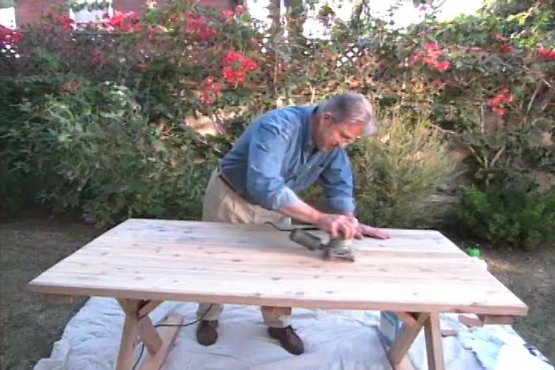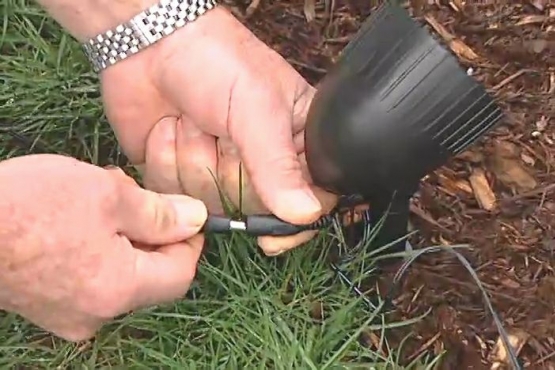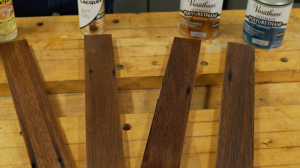How to Make a Patio out of Concrete Pavers
Build a garden patio in a single day using interlocking pavers in a simple design that's easily expanded.
Interlock straight-edged and key-shaped pavers that fit together like puzzle pieces in a rectangular outdoor patio design. This small patio plan is simple and quick, yet easily expanded. Laying pavers on a footing of gravel and sand keeps the patio level and promotes drainage.
Read More
Consider Yard Features and Obstacles When Positioning the Patio
Position and size the patio to complement existing yard features and walkways. Identify and mark obstacles and hazards such as electrical lines or other underground utilities to avoid as you dig the footer.

Mark a True Rectangle with Square Corners for the Patio Footer
Mark the four right-angled corners of the patio footer with stakes. String mason’s line around the stakes to outline the perimeter. Measure between each pair of diagonally opposing corner stakes--the distances should be equal if the corners are square.

Cut the Sod from the Rectangle Marked for the Patio
Use flat-bladed shovels to cut the sod two inches outside the mason’s line as allowance for retaining strips to keep the pavers stationary. Cut the interior sod into small rectangles for later reuse, sliding the shovel beneath for easy removal.

Dig the Hole for the Patio Footer Seven Inches Deep
Excavate the entire patio area to seven inches to allow for gravel, sand and pavers. Measure from the bottom of a board spanning the footer to ensure the seven-inch depth at the sides and middle of the footer.

Line the Patio Footer with Landscape Fabric and Gravel
Line the footer with landscape fabric to stop weeds growing between the pavers. Fill the footer with 3 1/2 inches of gravel, then level and tamp it. Both fabric and gravel will allow rainwater to drain into the ground below.

Use Screed Rails to Ensure a Uniform Layer of Sand
Lay two lengths of 1-inch diameter electrical conduit on top of the gravel as screed rails and distribute a 1-inch layer of sand. Glide the edge of a two-by-four along the screed rails to ensure a uniform sand thickness.

Edge with Paver Border Pieces and Alternate Field Stone Pattern
Start at the patio's edge, fitting straight-edged border pieces along the perimeter and key-shaped field stones in the interior in an alternating pattern. Remove the screed rails, fill the groove with sand and smooth with a wide putty knife.

Drive Spikes into L-Shaped Edging to Hold Pavers in Place
Place special L-shaped edging around the patio perimeter to prevent the pavers from migrating. Drive in spikes to hold the edging, placing one at every fourth hole in the ready-made edging.

Sprinkle Sand on Patio and Brush into Crevices between Pavers
Add more sand to the surface of the patio and work the sand into the crevices and tiny gaps between the pavers with a stiff-bristled broom.

Spray Patio with Water to Wash Sand into Paver Joints
Adjust your garden hose to a fine spray and wet the surface, washing the sand down into the joints. This final layer of sand will stabilize the pavers to minimize shifting.
Related Tips
Blog Articles
How to Protect Unfinished Wood
Many people are unsure how to protect unfinished wood. Perhaps you've bought a used piece of furniture, sanded it down, and revealed its beautiful wood grain. Now, you want to preserve its natural beauty without painting it. What should you use? In this blog post, we’ll guide you through your options to help protect and showcase your wood piece.
Reasons You Should Replace Your Shower Head
Brian had some guests over – and when they left, he discovered that the shower head was broken. In this video, he will show you how easy it is to replace a showerhead. Whether you're upgrading from a basic plastic model to a sleek stainless steel version, or simply need to fix a broken one, the process is easy.
A Space-Saving Laundry Hack
Are you tired of cramped laundry areas and limited workspace? If you have a small space, we have a big solution for you! This DIY project is perfect to maximize your space and create a functional laundry area. Using a folding shelf bracket, you can easily create a countertop that folds up when not in use, saving valuable space. What’s the best part of a folding laundry shelf? You can customize it to fit your unique style and needs.







